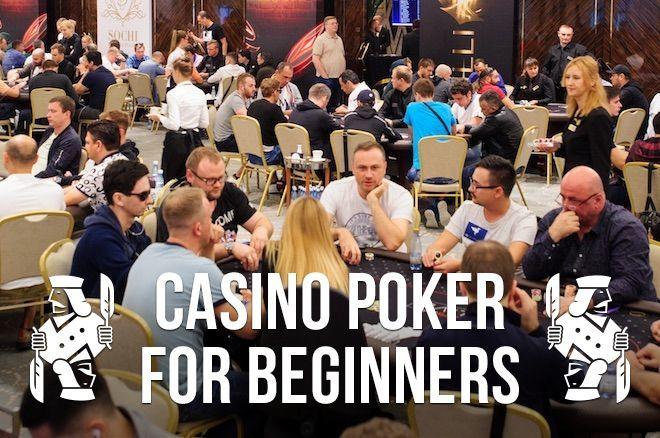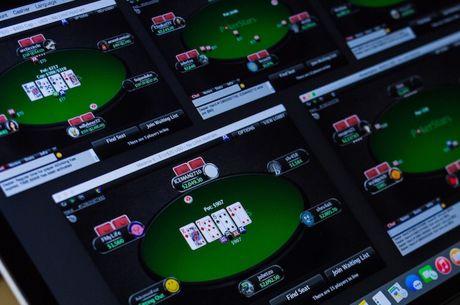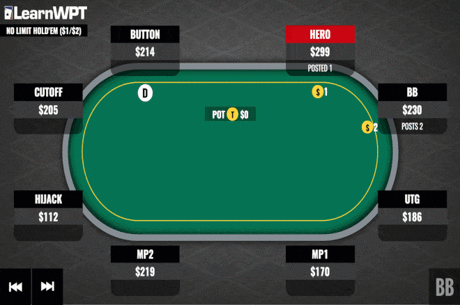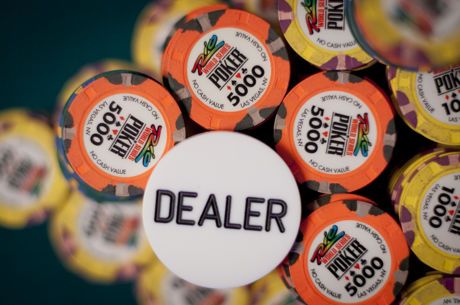Casino Poker for Beginners: Don't Do This When Playing With a Friend

Ed. note: For those who might have missed it before, we're reprising Robert Woolley's series of articles for poker players who are new to live poker. The series is great for newcomers, and likely useful as well to those with experience playing in casinos and poker rooms.
This week I am using my "Casino Poker for Beginners" series to warn about a practice that is common among players new to poker, who engage in it innocently, not realizing that it is both unethical and a violation of one of the most important rules of the game. That practice is collusion.
A typical example is two friends heading to the casino to spend a few hours playing poker together. They're worried that the cutthroat nature of the game �� a game in which the whole point, after all, is to win the other players' money �� may cause hard feelings and damage their friendship if they really go at each other hard. So they make a deal to prevent this.
The deal may take any of several forms.
- Maybe if one of them puts in a raise, the other has to drop out of the pot.
- Maybe they'll never bluff each other, so that a strong bet always indicates a strong hand.
- Maybe they'll never slow play each other when dealt a monster hand.
- Maybe they'll use a secret hand signal to indicate "I've got the goods this time, so you should fold and let me take these other people's chips."
- Maybe if they end up as the only two in a hand, they'll always just check every street rather than betting and raising each other.
For our purposes, all of these agreements, plus many other forms they might take, are equal �� and equally wrong.
Poker is not a team sport. It is an intensely individualistic, dog-eat-dog game. In fact, poker doesn't even work right if the players don't approach it with that attitude.
Occasionally since the "poker boom," different organizations have tried to put together forms of poker that use teams, often for the purposes of making exciting television. None has been all that successful. Introducing collusion, wherein a player tries to help or at least not hurt specific other players, tends to distort the essence of the game so much the result is often barely recognizable as poker.
I think it's important to state this bluntly: Collusion in poker between two or more players, in all of its many forms, is always cheating, pure and simple. You should never engage in it, never agree to it, and actively warn others against it if they propose that you join them.
Furthermore, if you suspect that collusion is occurring at your table �� whether the culprits are friends or strangers to you �� you should report it to the poker room management. Both your personal integrity and the integrity of the game require these things of you.
As Mike Caro once correctly pointed out in an article on the subject, "when you soft play friends at the table others get hurt in the crossfire." In other words, trying to make things easier for a friend often amounts to making things unfairly difficult for others at the table.
"Aggressive opponents, who are playing honestly, especially suffer," Caro continues. "That's because they mistake what's happening through secret alliances as tactical traits exhibited by the group of friends. This causes those honest players to make poor decisions for the wrong reasons on future hands."
There is only one kind of agreement you should make with friends before sitting down at a poker table with them: You will all do everything in your ability (and within the rules, of course) to win all of each other's money, just as you will do against all of the other players. However the cards and chips may fall, there will be no hard feelings about it, and you will leave the game just as much friends as when you sat down, regardless of who won or lost.
If you can't make and stick to that kind of deal with your friends, then you cannot play poker with them �� period. And that's perfectly fine!
I understand and appreciate that, for example, some married couples just can't stand to play hard against each other, because each finds it too stressful to inflict pain and loss on his or her partner. There is absolutely nothing wrong with having that kind of relationship. It just means that you can't play poker against each other.
If you're playing cash games, you can decide simply to be at different tables �� problem solved. In a tournament, however, you don't get to control table assignments, which means that you can't enter a tournament with any other person against whom you cannot agree to compete full-bore.
It has been said that there are no friends at a poker table. I understand the point of that aphorism, but I'm too literal-minded to approve of it. Of course you can have friends at the poker table �� both ones that you came with and ones that you make while playing. In fact, friends make poker more fun.
The only requirement is that you not play compete less fully against them because they're your friends.
Robert Woolley lives in Asheville, NC. He spent several years in Las Vegas and chronicled his life in poker on the "Poker Grump" blog.
In this Series
- 1 Casino Poker for Beginners: Taking a Seat in Your First Game
- 2 Casino Poker for Beginners: How to Keep or Change Seats in a Cash Game
- 3 Casino Poker for Beginners: Playing Your First Round
- 4 Casino Poker for Beginners: Rules and Etiquette Regarding Poker Chips
- 5 Casino Poker for Beginners: How to Handle Chips When Betting & Raising
- 6 Casino Poker for Beginners: Chip Rules, Chip Tricks, Collecting & More
- 7 Casino Poker for Beginners: The Deal With the Dealer Button
- 8 Casino Poker for Beginners: Missed Blinds, Seat Change & Other Buttons
- 9 Casino Poker for Beginners: Kill & Half-Kill Buttons, Overs and More
- 10 Casino Poker for Beginners: Lammers, Rebuy Buttons, Add-Ons and More
- 11 Casino Poker for Beginners: Keep Your Hole Cards Hidden
- 12 Casino Poker for Beginners: Marked Cards, Automatic Shufflers & More
- 13 Casino Poker for Beginners: Exposed Cards, Fouled Decks & Other Oddities
- 14 Casino Poker for Beginners: What It Means to 'Protect Your Hand'
- 15 Casino Poker for Beginners: When to Keep Your Cards Covered
- 16 Casino Poker for Beginners: Etiquette When Sharing Space at the Table
- 17 Casino Poker for Beginners: Bonuses, Jackpots, Drawings & Other Promos
- 18 Casino Poker for Beginners: Talking 'Table Stakes'
- 19 Casino Poker for Beginners: The One Thing You Can't Discuss at the Table
- 20 Casino Poker for Beginners: Be Careful Whenever Using 'Action' Words
- 21 Casino Poker for Beginners: Make a Mistake? Three Ways to Respond
- 22 Casino Poker for Beginners: Get to Know Poker Room Personnel, Part 1
- 23 Casino Poker for Beginners: Get to Know Poker Room Personnel, Part 2
- 24 Casino Poker for Beginners: A Few Unusual House Rules
- 25 Casino Poker for Beginners: Chopping Blinds - Etiquette & Expectations
- 26 Casino Poker for Beginners: Don't Do This When Playing With a Friend









